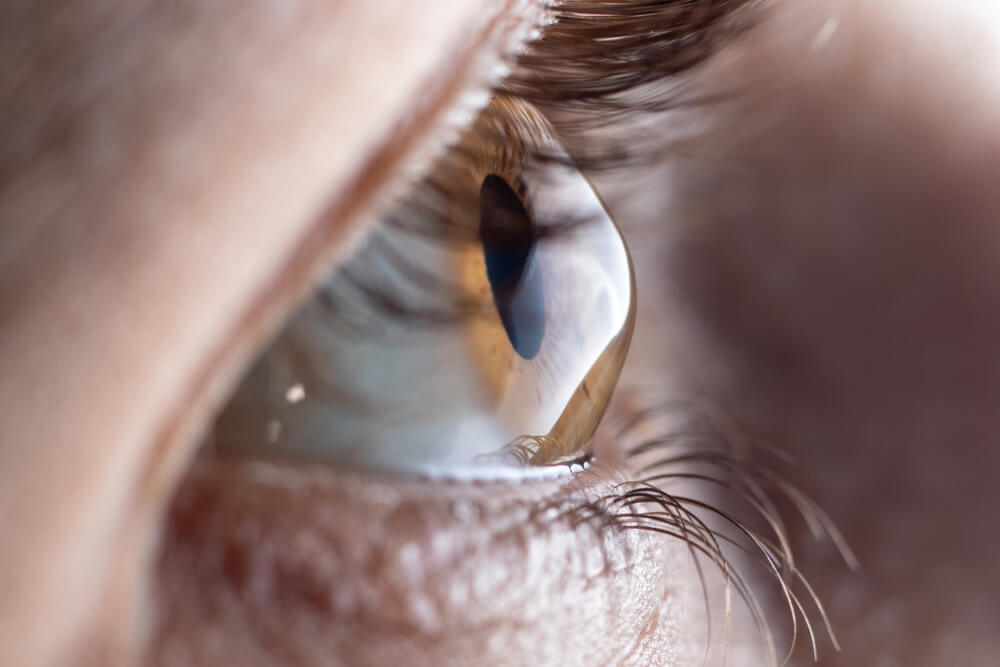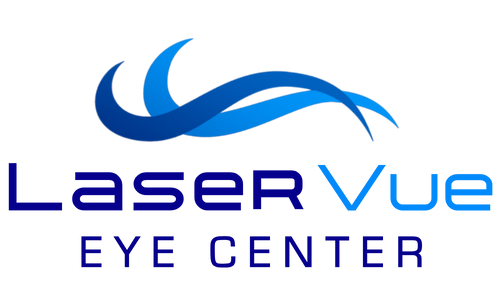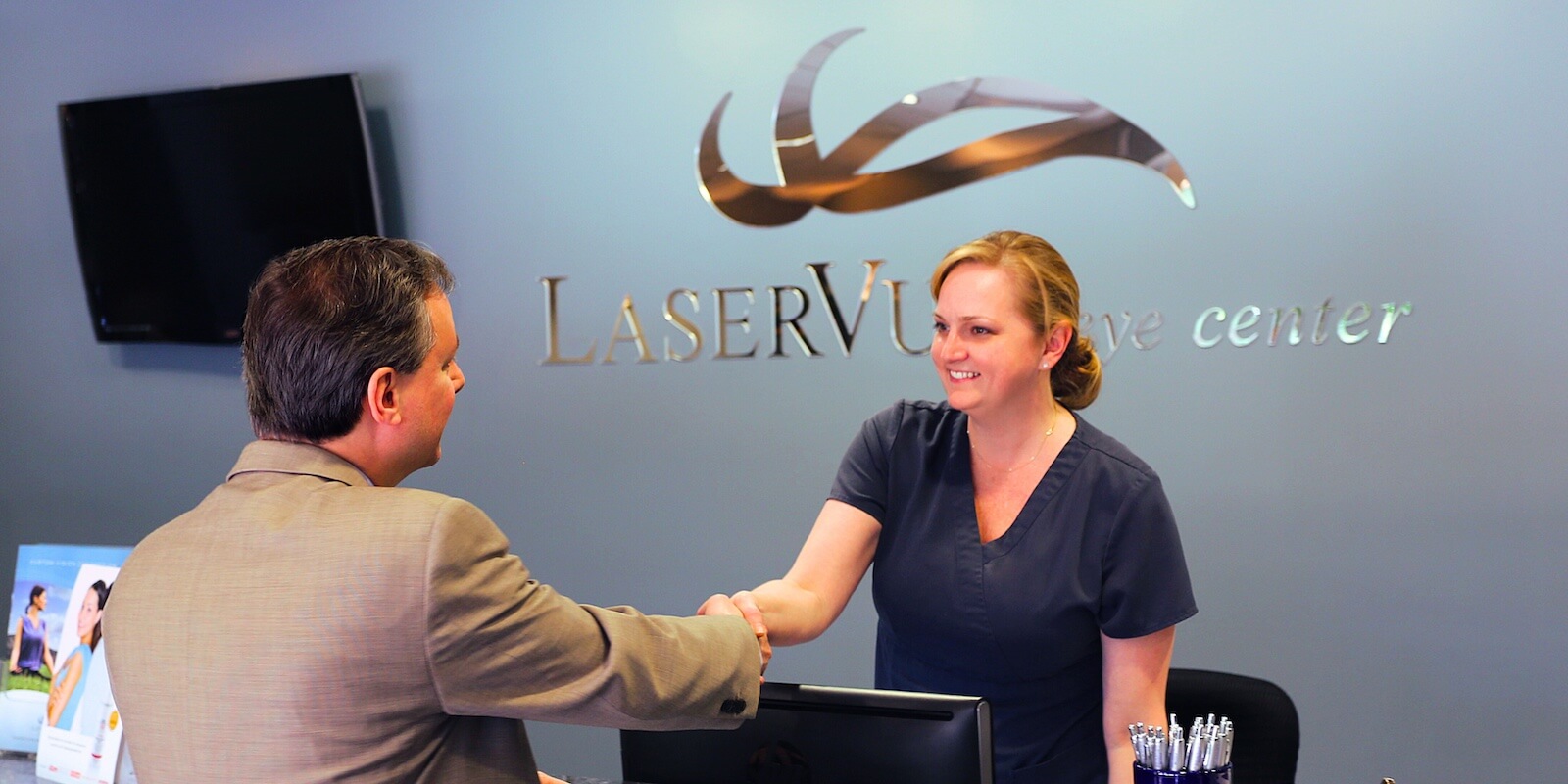
What is Keratoconus?
Keratoconus, pronounced (KAIR-ah-toh-KOH-nus), is a progressive eye disease that causes the normally round cornea to become thin and bulge into a cone-like shape. Keratoconus can form in one or both eyes and it’s usually diagnosed in younger patients. Many patients are commonly diagnosed with mild astigmatism at the onset of puberty and are later diagnosed with keratoconus in their teens or early 20’s. Since keratoconus is a usually a progressive disease (gets worse with time) it’s important to have an early diagnosis so eye doctors have the opportunity to treat the disease as early as possible.
What is it? What are your Options?
LaserVue Eye Center offers innovative keratoconus diagnoses and treatment options in the San Francisco Bay Area. Our keratoconus treatment options include specialty contact lenses, Intacs, and Collagen Cross-Linking which can slow or even stop progressive keratoconus.
Corneal collagen cross-linking, or CXL, is a revolutionary noninvasive outpatient treatment for progressive keratoconus patients and corneal ectasia patients. This treatment requires a riboflavin-containing solution and an ultraviolet light delivery device to strengthen the cornea. CXL treatments slow or halt progressive keratoconus for about 90% of patients and may also improve vision in some patients treated.
How Does Keratoconus Affect my Vision?
Because the cornea is responsible for focusing light into the eye, any abnormalities can cause vision to blur. Common conditions such as nearsightedness, and/or astigmatism can be caused by the cornea being too steep, too flat or football shaped. Since keratoconus causes the cornea to weaken or bulge into a cone-like shape, vision becomes very blurry and very unstable. This can severely affect vision and make simple everyday tasks such as driving a car, reading a book or watching television difficult or impossible.
Keratoconus Symptoms and Diagnoses
At first, keratoconus is often diagnosed as mild astigmatism when a patient is in their teens or early 20’s. When the patient returns for an annual exam, their eye doctor will notice a larger than normal change in their eyeglass prescription and/or corneal curvature. As the disease progresses, so does the severity of their myopia and astigmatism, with progressive decrease in vision.
Below is an example what keratoconus induced astigmatism and myopia (nearsightedness) might look like.

How is Keratoconus Treated?
When the disease is initially diagnosed, many patients will require glasses or gas permeable contact lenses in order to maintain clear vision. As keratoconus progressively worsens, Intacs implants may be needed. Intacs are small subcircular rings that are inserted into the cornea that can help stabilize the cornea. If the disease continues to progress, a corneal transplant may be required. However, Collagen Cross-Linking or CXL is now available, which has shown tremendous success in slowing or stopping the progression of keratoconus. There are both FDA approved and “Off-Label” versions of CXL available, please ask what specific treatment is being recommended to you and benefits/risks associated with each form of treatment.
Corneal Collagen Cross-Linking (CXL)
How is Corneal Collagen Cross-Linking (CXL) Performed?
CXL is performed as an outpatient procedure. First, your eye doctor will instill anesthetic eye drops to help ensure comfort. Next, an eye speculum is used to help keep the eyes open during treatment and a series of vitamin B2 (riboflavin) drops are administered to the surface of the eye. An ultraviolet (UV) light is then applied to the eye, which causes the vitamin B2 to activate and thus form more collagen cross-linking.

How Does Corneal Collagen Cross-Linking (CXL) Work?
Ultraviolet light reacts at a molecular level with riboflavin on the surface of the cornea. Resulting bonds, or cross-links, make the cornea stronger. Studies have shown that collagen cross-linking has been extremely successful in slowing or stopping keratoconus and corneal ectasia. Many patients also have improved vision after undergoing treatment.
Corneal Collagen Cross-Linking Benefits
Corneal Collagen Cross-Linking Candidacy
Other Keratoconus Treatment Options
Soft and Rigid Contact Lenses
In the early stages, eyeglasses or soft contact lenses are usually the first step in helping with keratoconus induced myopia and astigmatism. As the disease progresses, most patients will graduate to rigid gas permeable (RGP) contact lenses. These lenses help smooth the irregular cone-shaped cornea, which helps improve vision. RGP contacts are somewhat difficult to fit, which is why it is important to see an eye doctor that has a lot of experience with these specialty fit contacts.
Intacs
Intacs are extremely thin semi-circular rings made out of a plastic-like material. These rings are inserted into the eye to help reinforce corneal strength and stability. Intacs can also help to correct for myopia and astigmatism caused by keratoconus.
Corneal Transplant
As corneal thinning caused from keratoconus progresses, RGP contacts and Intacs may no longer be a viable solution. When this happens, a corneal transplant is needed. A cornea transplant, also known as penetrating keratoplasty (PK) is necessary in 10-20% of patients diagnosed with keratoconus. During the corneal transplant procedure, the surgeon will remove the diseased cornea and replace it with a healthy donor cornea. This is often a highly successful procedure, however recovery time can take a year or sometimes longer.
Call Today
If you’ve been diagnosed with keratoconus, call LaserVue today to learn more about our treatment options for keratoconus.
Remember, the early detection of this disease is essential to stopping the progression. Keratoconus does not have have a cure, only treatments to stop progression.

